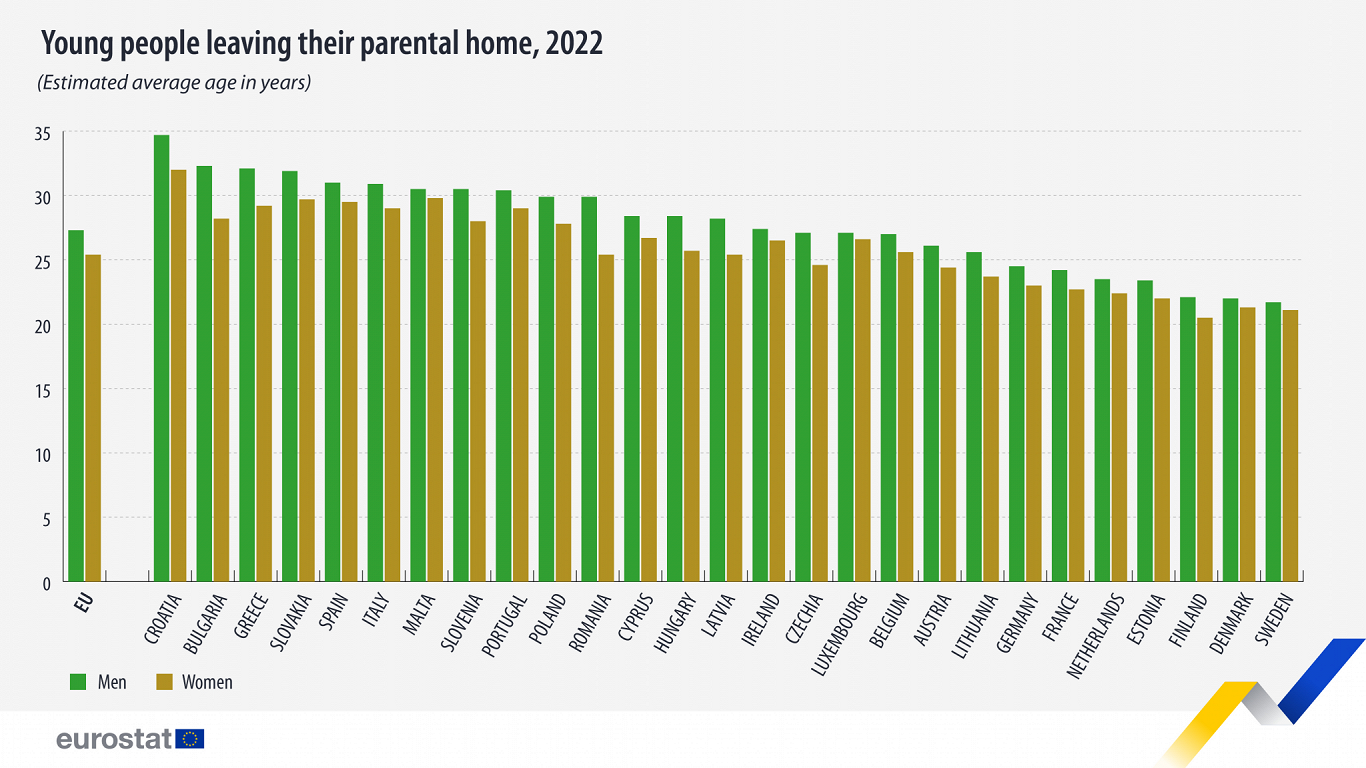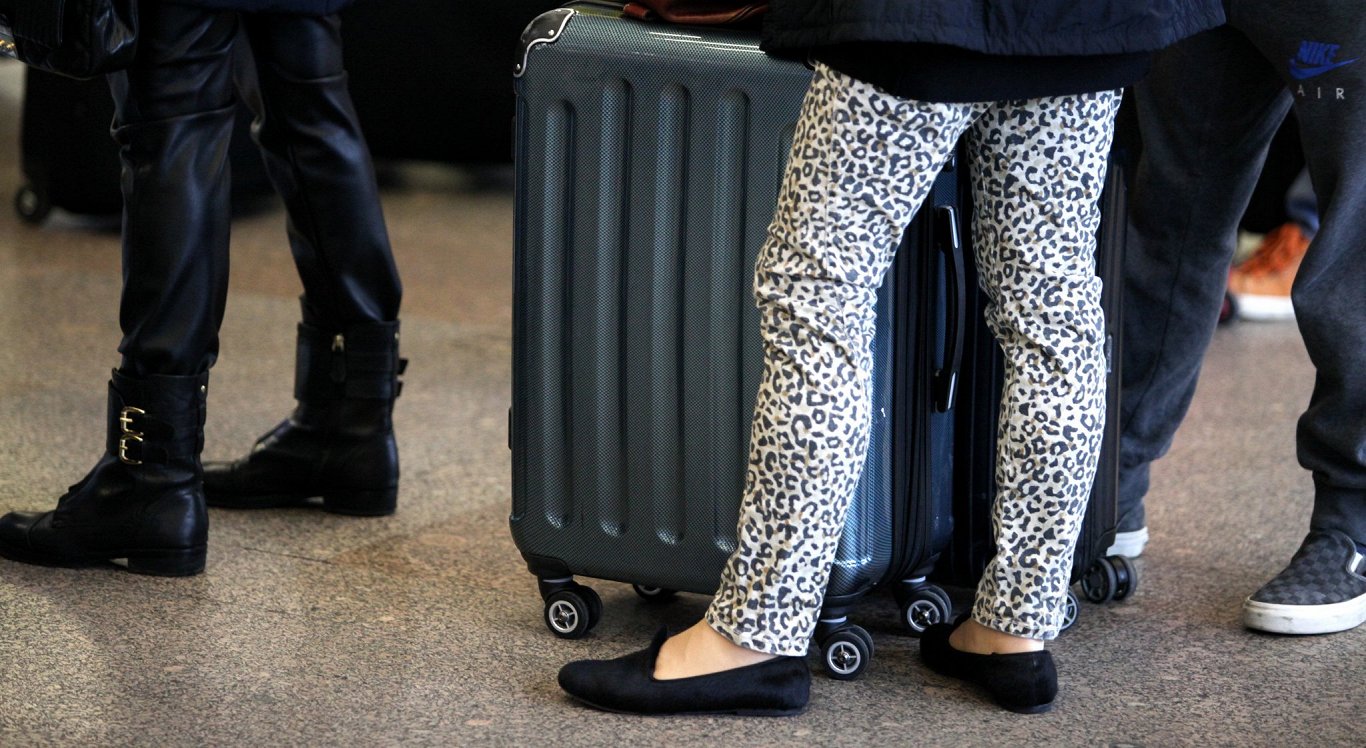There is a marked difference in the data when it comes to the sexes though, with women leaving home aged 25.4 yearson average, but men lingering longer and not leaving until 28.2 years on average.
Across the EU, on average, men left the parental home later than women: men at the age of 27.3 years and women at 25.4 years in 2022. This difference was observed in all countries.

Men left their parental home, on average, after the age of 30 in nine EU countries (Croatia, Bulgaria, Greece, Slovakia, Spain, Italy, Malta, Slovenia and Portugal), while this is the case for women in only one country: Croatia.
The widest gender gap was found in Romania, where young men left at 29.9 years and women at 25.4 years (4.5-year gender gap), followed by Bulgaria (4.1-year gap), with men moving out at 32.3 years and women at 28.2 years. In contrast, Luxembourg (0.5-year gap), Sweden (0.6), Denmark and Malta (both 0.7) recorded the narrowest gaps between young men and women leaving the parental home.
In 2022, young people across the EU left their parental home on average at the age of 26.4 years. The highest average ages, at 30 years or above, were recorded in Croatia (33.4 years), Slovakia (30.8), Greece (30.7), Bulgaria and Spain (both 30.3), Malta (30.1) and Italy (30.0). In contrast, the lowest average ages, all under 23 years old, were registered in Finland (21.3 years), Sweden (21.4), Denmark (21.7) and Estonia (22.7).
In the space of 10 years, the average age of young people leaving their parental home increased in 14 EU countries, most notably in Croatia (+1.8 years), Greece (+1.7) and Spain (+1.6). In 2012, the lowest average in the EU was in Sweden, where young people left their parental home at 19.9 years old, however, in 10 years that average increased by 1.5 years.
At the EU level, between 2012 and 2022, the average age varied slightly, with the lowest being 26.2 years (2019) and the highest 26.5 (2012, 2014, 2020 and 2021).




























